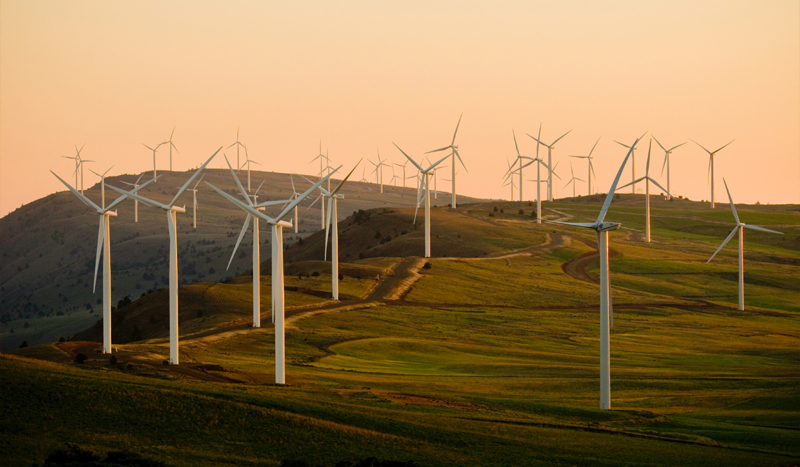
On April 21, President Joe Biden issued a sweeping executive order to advance so-called “environmental justice.” Now, reports are showing that low-income Americans will bear the brunt of his administration’s “green” policies.
Upon unveiling the new directive that will not get a vote in Congress, the president decreed:
We must advance environmental justice for all by implementing and enforcing the Nation’s environmental and civil rights laws, preventing pollution, addressing climate change and its effects, and working to clean up legacy pollution that is harming human health and the environment.
Advancing environmental justice will require investing in and supporting culturally vibrant, sustainable, and resilient communities in which every person has safe, clean, and affordable options for housing, energy, and transportation.
It is also necessary to prioritize building an equitable, inclusive, and sustainable economy that offers economic opportunities, workforce training, and high-quality and well-paying jobs, including union jobs, and facilitating an equitable transition of the workforce as part of a clean energy future.
According to an op-ed in the Washington Examiner, Biden “is using the ‘environmental justice’ rallying cry as a pretext to push a much broader agenda, such as undermining conventional energy sources and overhauling the federal regulatory system to ramp up costly, intrusive regulations.” The Examiner continues:
Biden apparently thinks that low-income communities are clamoring for such things as trees and ponds. Meanwhile, he is ignoring how his energy policies are directly hurting these communities by making it more difficult for them to meet basic needs.
The Examiner referred to Biden’s cancellation of a permit to complete the Keystone XL Pipeline. Biden made the move via executive order on the day he took office. The massive energy project was officially halted as a result. At the time, the pipeline had 1,500 people working on it, and over 10,000 more were projected to be added by the end of 2021. Biden’s decision therefore cost about $800 million dollars in wages for working-class jobs, all in the name of “climate change” and the “green” movement.
Indeed, a report by Biden’s own Department of Energy demonstrated that as many as 59,000 construction jobs could have been created if the project was allowed to resume, with an economic impact of over $3 billion.
Sen. Steve Daines, R-MT, who represents one of the states through which the pipeline was supposed to run, said in January of this year that “Killing the Keystone XL Pipeline cost good paying jobs, it hurt Montana’s economy, and was the first step in the Biden administration’s war on oil and gas production in the United States.”
The Examiner illustrated that, in addition, Biden’s cancellation of the Keystone XL Pipeline has quashed Americans’ oil and natural gas supply, causing energy prices to skyrocket:
While many factors go into prices, current regular retail gas prices are almost 50% higher than when Biden took office. And the high prices have been persistent. Since June 2021, the average monthly price has been above $3 per gallon, with 12 months above $3.50 per gallon, including the month of May. Prior to this recent spike in prices, there had not been a month above $3 per gallon since 2014.
This, the Examiner explains, especially impacts low-income and rural Americans “who spend a greater share of their after-tax income on meeting basic needs, including purchasing gas.”
Yet for all its rhetoric on environmental justice, the administration isn’t changing course on its climate agenda. And akin to a “let them eat cake” moment, Transportation Secretary Pete Buttigieg touted expensive electric vehicles as a “solution” to high gas prices.
The writers of the op-ed were referring to a now-infamous comment Buttigieg made in November 2021 while being interviewed by MSNBC. The Secretary was excoriated by critics of the Biden Administration’s energy policy when he said a solution to rising gas prices was to buy an electric car, as people would then “never have to worry about gas prices again.”
At the time, the average price of a new electric car was nearly $56,000 – well over double the average price of a gas-run compact car.
Buttigieg also insisted that purchasing electric vehicles (EVs) would be an ideal solution for rural Americans who drive significantly more miles than their urban and suburban counterparts.
There is notably a dearth of EV charging stations in rural areas – and pockets of the United States have been dubbed “charging deserts.” Meanwhile, gas stations are widely available throughout the vast majority of the country.
>> THE DARK SECRET BEHIND THE DRIVE FOR ELECTRIC VEHICLES <<
The Examiner writers concluded:
Low-income communities have bigger concerns than putting up solar panels and helping out labor unions. They are unlikely to think the administration’s climate agenda is more important than being able to afford turning on the lights and driving their children to school.
…
Congress needs to push back against these climate policies. Whatever “environmental justice” might mean to the Biden administration, there’s hardly justice when the federal government’s own environmental policies make it more difficult for low-income families and all Americans to access affordable energy while limiting the personal choices available to meet basic needs.

